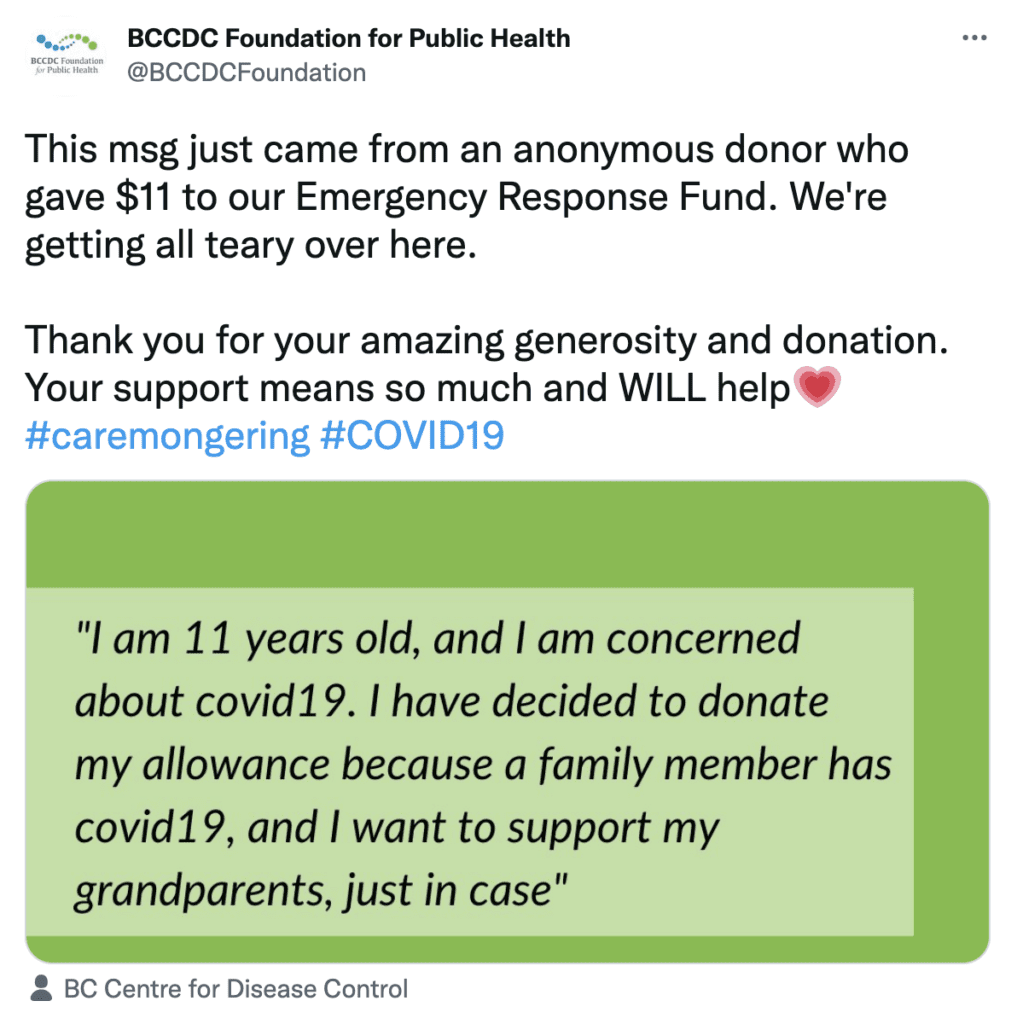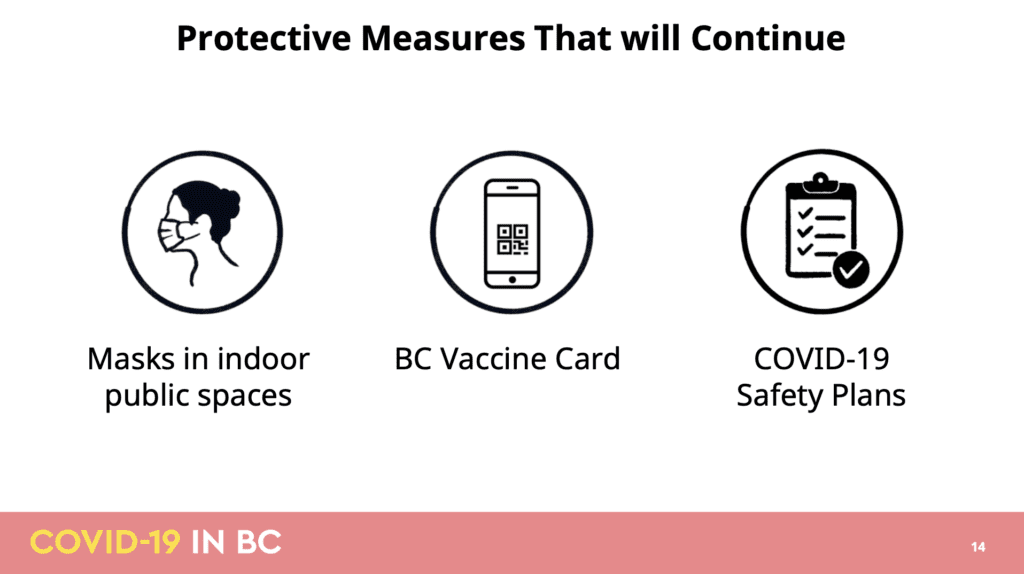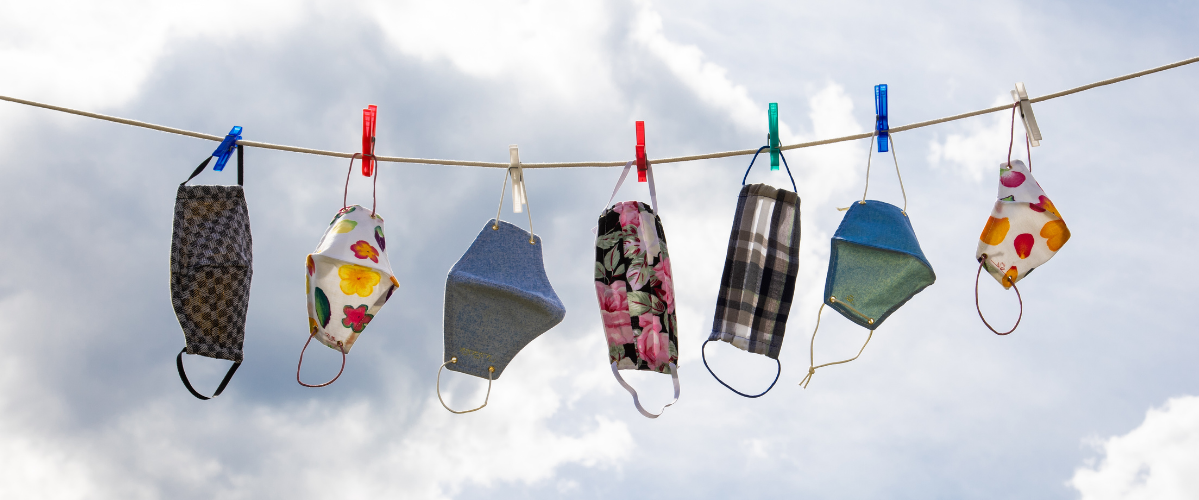Personal reflections by Kristy Kerr, BSc, MPH-HP
Executive Director, BCCDC Foundation
In April 2020, a couple of months after the COVID-19 pandemic was declared, I wrote a blog on some of my reflections about the pandemic. As I re-read it recently, nearly two years later, what is interesting is that much of it rings true, today.
Two years ago, I wrote that COVID-19 is rapidly evolving, and getting through this requires that we all work together and do some really difficult things that go against our natural human instincts.
I wrote that this is tough, and we feel a lack of control.
I wrote that it’s okay and natural to have these feelings of stress, anxiety, worry, and fear.
I wrote about #CareMongering, the 7pm cheer for healthcare workers, and about Dr Bonnie Henry being a superhero. In those early days, even with the anxiety, lack of control, and uncertainty, there was so much observable collective love and support.

Today, I read about the trucker ‘freedom’ convoy, I see hateful messages on social media, I feel an incensed tone in the world. Unfortunately, much of the vitriol seems to have a louder voice and broader reach. And I’ve seen a divide grow wider over the last year. I admit, I feel saddened and dismayed by much of this.
Nevertheless, I also realize that collective support and love is still out there, and just because the negative stories draw attention, does not mean they are the norm, nor the majority. Quite the opposite:
- In BC, over 90% of our population has been vaccinated with at least two doses.
- We have not only a Provincial Health Officer who remains a superhero, but a team of public health leaders, experts, and workers behind the scenes who are all also superheroes.
- Communities are supporting their citizens, neighbours are looking out for each other, businesses are committing to the safety of their customers, and we continue to prioritize those who are vulnerable.
- Many are sharing good evidence-based content on social media.
- People are donating to support COVID-19 response and sharing messages of hope.
So, while we may not be as loud about our support and resolve as we were in 2020, it’s still evident, and our humanity will continue to shine through the hostility.
And yes, with all honesty, in the last while anger has grown in me—anger for what we have all been through, for the hurt and suffering of those who have lost loved ones, at those who haven’t participated in the collective good, at how healthcare workers and journalists are being treated, and for blatant disregard for many people who experience personal anxiety due to underlying health issues, or other risks.
But I also feel pride. I feel pride in how so many people–from frontline workers to all of us who have sacrificed our joys to protect others–have come together and formed an unwritten commitment to watch out for each other, taken personal actions to keep others safe, and made deep sacrifices for the greater good.
When I look around at my colleagues in public health and healthcare, I see exhaustion, stress, grief. But, I also see tenacity and resolve. I see a commitment to the greater good. I see strength. When I look at so many of my friends, neighbours, and community around me, I see these same things.
Now, Dr Henry has begun an incremental easing of restrictions as we move to a long-term management strategy. While this is exciting for many, and important for our society, caution is still warranted. This isn’t a free for all to pretend COVID-19 isn’t still a deadly disease, or that SARS-CoV-2 isn’t circulating, or that we don’t have to be prepared and ready for the future.
We must think about others, even more now–we must protect children who cannot be vaccinated, those 5-11 who have not yet been vaccinated, and all of those who are vulnerable or at high-risk of serious, as well as long-term, illness—and we need to maintain a few important layers of protection, like masks indoors. And it is important to be gentle with others—some will struggle with greater anxiety around lifting restrictions and may be slow to return to activities they feel are risky—be kind to people in your life who may need a little time.

“These changes are taking effect after careful review of where we are in this pandemic, and the credit goes to all British Columbians for their action to protect themselves, their families and their communities. We will continue to rely on what is happening in B.C., science and evidence to guide our next steps in this journey to protect people from COVID-19 while safely easing restrictions.”
Dr Bonnie Henry
As Dr Henry suggests, this new strategy is careful and based on science—we cannot simply stop and flip a switch. COVID-19 variants of concern won’t stop just because we begin to look ahead. We still have to be mindful and diligent. We still must watch out for one another, and this means across the globe. Vaccine equity is critical. And vaccination will continue to remain our strongest tool in our toolkit.
We also must continue to monitor and avoid mis- and disinformation. At the start of the pandemic, we wrote a blog about terminology. One of the terms we defined is endemic, a term describing the stable state of an infectious agent at a predictable or baseline rate. Yet, I’m seeing this be widely misused.
Endemic isn’t something we decide because ‘we wish it to be so’. Endemic also doesn’t mean something isn’t deadly or pervasive. Malaria is endemic in many parts of the world, and still kills significant numbers of people every year. Calling an infection endemic does not tell us anything about how the disease will impact the population, who will be susceptible, or how many will die. Health policies and individual behaviour will shape endemic COVID-19.
I want to encourage hope, but not a false sense of reality. I want us to look ahead at a brighter time, but I want to urge caution around assumptions that COVID-19 isn’t still serious, and won’t continue to take lives. Omicron, for example, may be mild for many. But for many it has been, and still is, deadly—for example, vulnerable populations, people facing inequities such as homelessness or systemic racism, and healthcare and other frontline workers who put their lives on the line every day remain at risk.
We are continuing to do everything we can to fund and support critical COVID-19 response work and to ensure that evidence-based information is reaching our community. As we start to look ahead, we’re seeing our role evolving into recovery and addressing the societal consequences of the pandemic-related measures of the last two years. Our work won’t stop, and our vision of creating the healthy human won’t end, and as we transition to fewer restrictions, we will maintain our level of diligence and responsibility to you.
Let’s think about building a new, better, and stronger future for us collectively, and learning from this pandemic to strengthen our public health system and how we view health from a place of wellbeing, equity, and health promotion for all.
My Activate Health call-to-action today is this: please continue to have the resolve to take care of others and think about the greater good. Even as restrictions are eased, think about your personal risk and how what you do impacts others, and continue to set your own restrictions on your behaviours and actions.

Together we can continue to keep each other safe. This is how we will live with COVID-19 and find our better future. Likewise, this is also how we will deal with the other crises facing our province and our world.
Together we can fight the overdose crisis.
Together we can fight climate change.
Together we can prepare for future emerging threats.
If this pandemic has taught us anything, it’s that we are stronger together and we can thrive, together.
In 2020, there was such a strong focus on togetherness. And for the most part we have been, and still are, in this together. Two years ago, I wrote about my big hope, and it still stands true today:
“When we get through COVID-19, we will all remember what it felt like to support each other, to take individual actions and make individual choices to protect the collective good, and we will keep it going. We will apply this to our broader concept of health, how we resource our health and our healthcare systems, and how we live in and respect the world and people around us. Because small things we can all do can make a huge impact. It’s that simple.”
